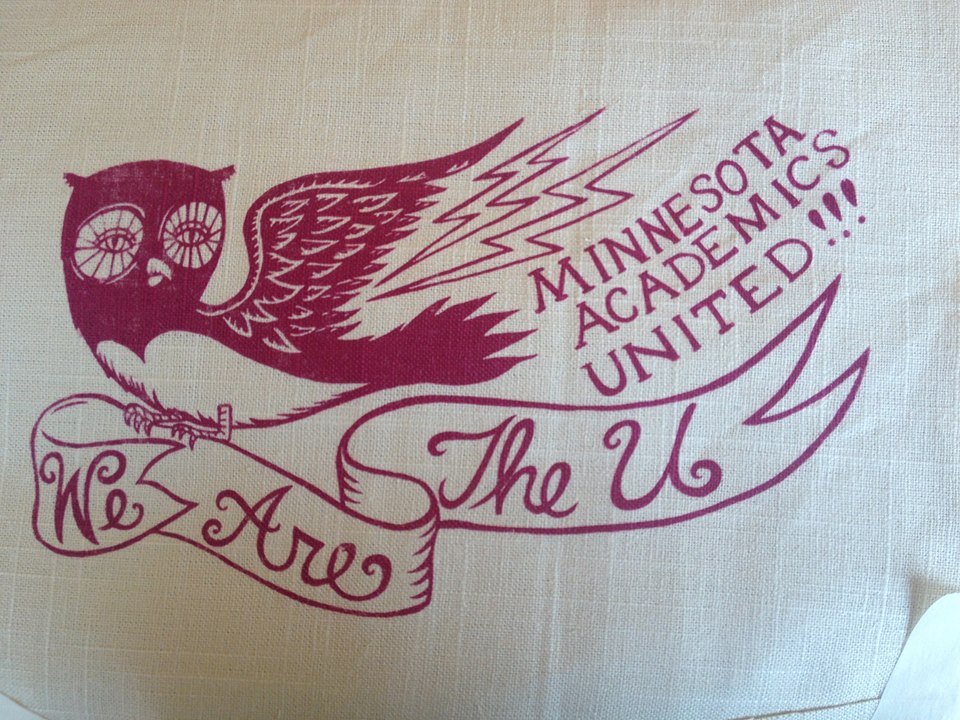

Share
University of Minnesota faculty who support a union expressed their disappointment that the University’s Office of Human Resources is objecting to the steps being taken by the state Bureau of Mediation Services.
The University announced last week that it would appeal a BMS decision in the State Court of Appeals and seek a stay of pre-election hearings for a faculty union. The BMS ordered hearings to determine whether the faculty and P&A classifications should be in the same bargaining unit.
“We believe that the BMS’s approach is inconsistent with both law and precedent, and it overlooks the unique role and tripartite responsibilities (research, teaching, and outreach) of faculty at our institution,” said Patti Dion, University director of employee relations.
Faculty involved in organizing disagree.
“We are dismayed by the University’s decision to spend months of administrative time and untold sums of taxpayer and tuition dollars on costly outside counsel to fight us, their own faculty, rather than just letting us choose for ourselves whether or not we want a union,” said Meredith Gill, a senior lecturer in Cultural Studies and Comparative Literature.
If a stay is granted by the State Court of Appeals while it considers the appeal, it could delay the union election for faculty for up to a year, the faculty said.
“We are forming a union so we can gain a stronger voice in University governance, and this is a perfect example of why,” said Irene Duranczyk, an associate professor in the College of Education and Human Development. “Rather than respond to the voice and needs of both tenure-track and contract faculty, after we have clearly indicated our interest in forming a union together, the University’s central administration is doing everything in their power to keep us divided.”
The disagreement between the faculty organizing committee and the administration centers on which faculty should be eligible to vote in the election and be part of the union. The organizing committee filed for an election to include both tenure-track faculty and contract faculty, together.
BMS ruled earlier this month that contingent instructors like teaching specialists and lecturers have never been placed in a bargaining unit for purposes of a union election, and that the University’s administrative classifications do not govern in this context. The next step in the process, as defined in state law, will be for BMS to assign these positions to the proper bargaining unit based on their “Community of Interest” in a hearing that will start in late April unless the court grants the administration’s request to put a stay on BMS proceedings.
“Tenure-line and contingent faculty are forming a union together because we are all instructional faculty,” said Jerry Cohen, a professor of Horticultural Science. “Contract faculty positions like teaching specialists and lecturers teach many of the same classes, participate in faculty governance, and engage in service and research. While we have different roles at the University, we are all responsible for teaching our students and making the U a great place to learn.”
Faculty at the University of Minnesota-Twin Cities campus filed for a union election to join Service Employees International Union Local 284 on Jan. 20. The union would include approximately 2,500 tenure-line and contingent faculty at the Twin Cities campus and would be one of the largest single-campus faculty unions in the country.

